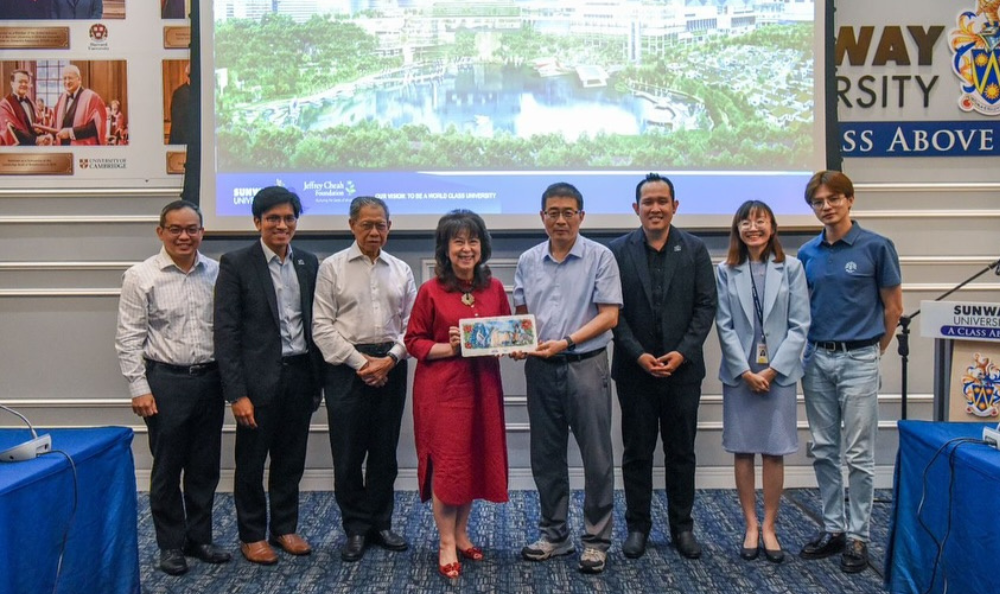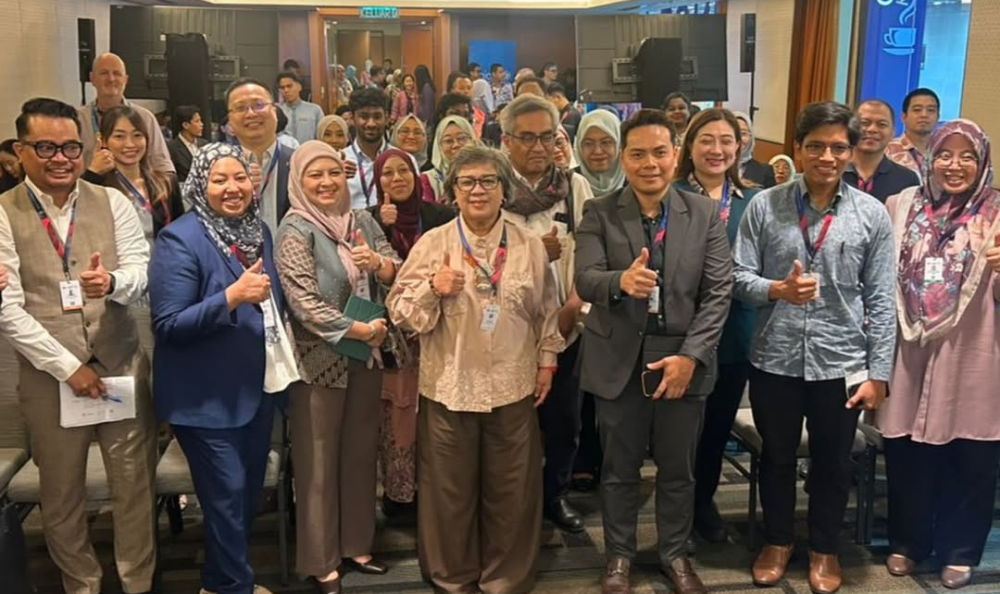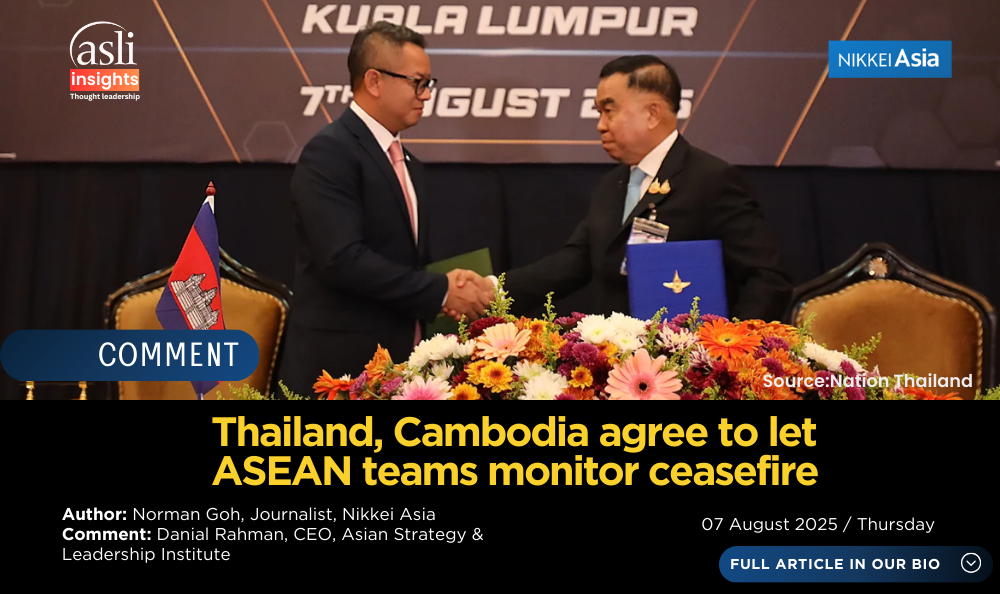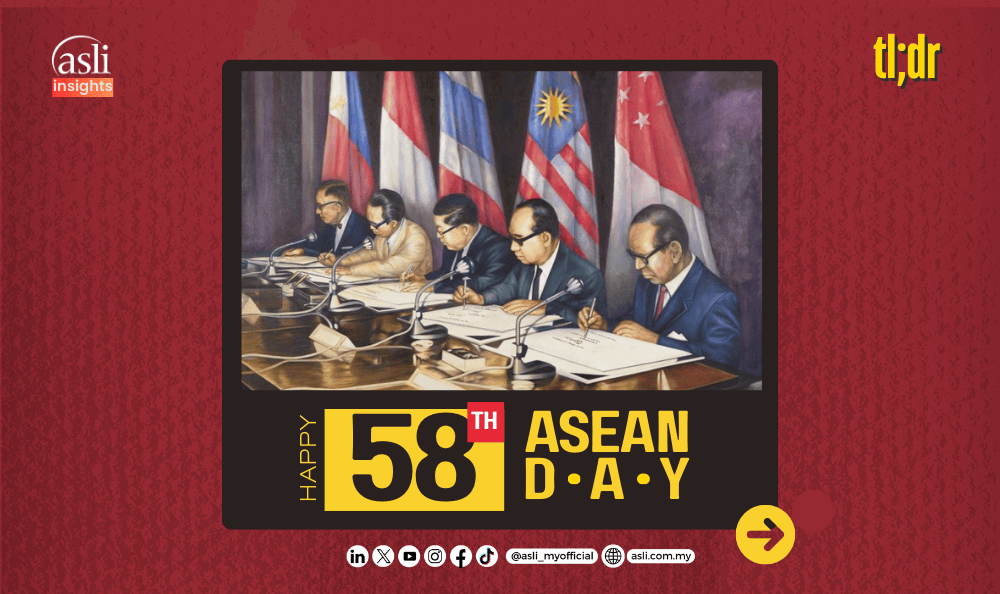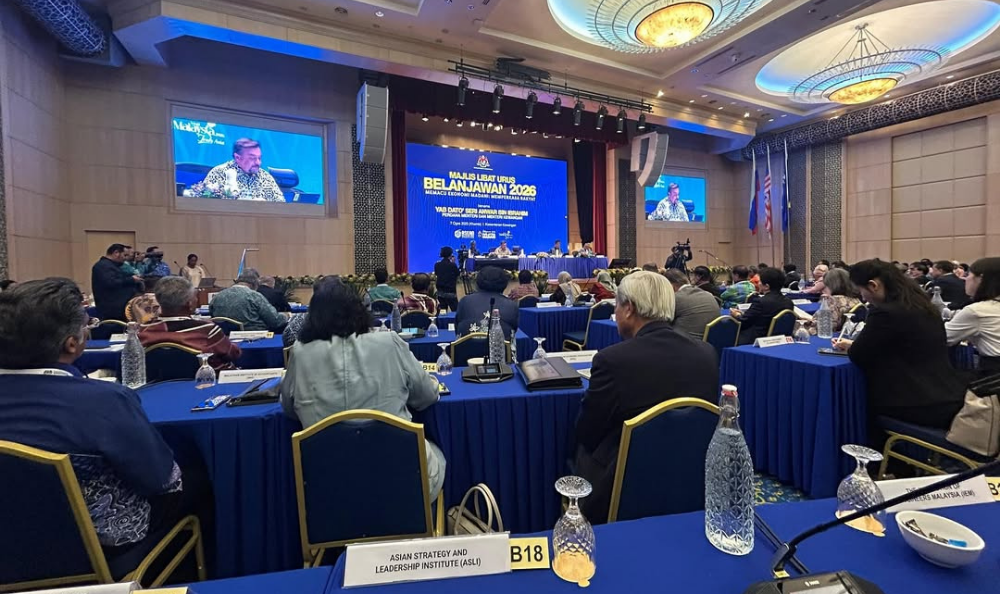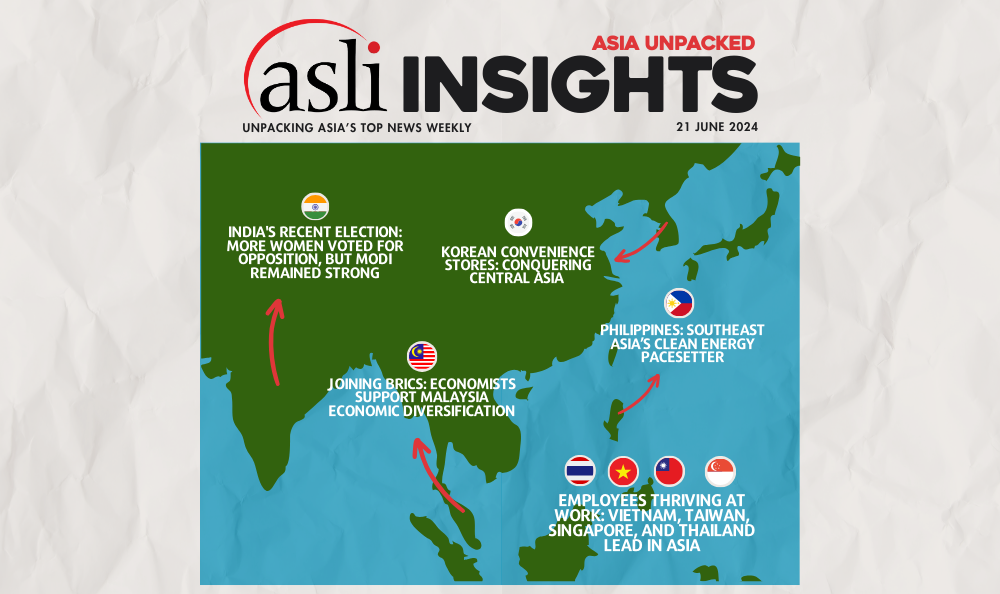
ASLI INSIGHTS: Asia Unpacked | 21 June 2024
ASLI is back with more ASLI INSIGHTS: Asia Unpacked!
Stay tuned for more top news in Asia handpicked by ASLI and for our curated weekly roundup!
This week’s Asia top news:
1) Philippines: Southeast Asia’s Clean Energy Pacesetter
The Philippines has emerged as a regional leader in planned clean-power projects, attracting significant domestic and foreign investment due to fewer restrictions and green policies. Allowing full foreign ownership of renewable projects has secured a pipeline of 99 gigawatts of wind and solar developments, surpassing Vietnam and Indonesia. Despite only 3% currently under construction, this aligns with the goal to boost renewables in the energy mix to over a third by the decade's end. Private sector involvement and regulatory clarity have spurred innovation and investment, with major firms like Scatec ASA and local entities expanding operations. Challenges remain, such as extending transmission lines and boosting grid capacity, but the Philippines' policy certainty positions it ahead of regional peers in renewable energy growth.
Read more:
2) Joining BRICS: Economists support Malaysia economic diversification
Economists believe Malaysia’s bid to join BRICS will diversify trade and investment, reduce reliance on the US dollar, and enhance access to broader markets. Prime Minister Datuk Seri Anwar Ibrahim confirmed the intention to join the group, founded in 2009 with Brazil, Russia, India, China, and later South Africa, and expanded in 2024 to include Iran, Egypt, Ethiopia, and the UAE. Experts like Dr. Mohd Afzanizam Abdul Rashid and Prof Geoffrey Williams highlight that BRICS membership could insulate Malaysia from US monetary policy shifts, lower transaction costs, and boost geopolitical influence. This move aligns with Malaysia's strategy to strengthen ties within the Global South while maintaining non-aligned, independent stances, as the economic balance of power shifts globally.
Read more:
- https://www.bernama.com/tv/news.php?id=2308925
- https://www.bernama.com/tv/news.php?id=2308971
- https://www.thestar.com.my/news/nation/2024/06/19/analysts-brics-could-increase-fdis-strengthen-msias-global-voice
3) Korean Convenience Stores: Conquering Central Asia
South Korean convenience store operators, facing a saturated domestic market, are expanding overseas, particularly in Southeast and Central Asia, where economic growth and the popularity of Korean content boost demand for Korean-style convenience stores. The top two chains, BGF Retail and GS25, operate 1,168 stores abroad, including in Vietnam, Mongolia, Malaysia, and Kazakhstan. Smaller rival Emart24 runs 52 stores in Malaysia. These companies leverage their expertise in compact store operations and centralized distribution to modernise markets in these regions. The boom in Korea's convenience store industry, fueled by innovative merchandising and the popularity of Korean culture, is now being replicated overseas. This expansion comes as the domestic market, with about 55,580 stores, reaches saturation, prompting Korean operators to seek growth opportunities abroad.
Read more:
4) India’s Recent Election: More Women Voted for Opposition, But Modi Remained Strong
Indian Prime Minister Narendra Modi's BJP suffered unexpected seat losses in the recent general election but maintained strong support. Despite narrowly losing key battleground states like Uttar Pradesh to the INDIA coalition, led by the Indian National Congress, BJP's overall vote share dropped by less than 1%. The opposition saw increased female voter support, while BJP retained strong youth backing. Analysts believe BJP's reliance on Modi's personal brand may need reevaluation, as the party failed to secure a parliamentary majority for the first time in a decade, forming a coalition government with 293 seats.
Read more:
5) Employees Thriving at Work: Vietnam, Taiwan, Singapore, and Thailand Lead in Asia
According to the 2024 Gallup State of the Global Workplace report, 37% of Thai employees are thriving in their workplaces, placing Thailand fourth in Asia behind Vietnam, Taiwan, and Singapore. The report, which surveyed 128,000 employed respondents from over 160 countries, categorises employees as thriving, struggling, or suffering, with 34% globally reporting they are thriving, 58% struggling, and 8% suffering. European countries dominate the top ten list for workplace thriving, with Finland leading at 83%. In Asia, Vietnam leads with 51% of employees thriving. The report highlights that meaningful work and relationships significantly enhance daily enjoyment and reduce negative emotions. Additionally, Thailand is classified as a low labour rights country, similar to Singapore and the Philippines, whereas Vietnam is among the high labour rights countries.
Read more:
- https://www.nationthailand.com/business/corporate/40038841
- https://www.thestar.com.my/aseanplus/aseanplus-news/2024/06/15/thailand-fourth-in-asia-in-number-of-employees-thriving-in-workplaces-vietnam-in-top-place-followed-by-taiwan-and-singapore
- https://www.cnbc.com/2024/06/12/top-countries-including-finland-denmark-where-workers-thrive-most-gallup.html
🌱 Empowering Leaders, Advancing Societies.
Follow us for Asia’s weekly highlights: https://linktr.ee/asli_myofficial
#ASLI #EmpoweringLeaders #AdvancingSocieties #Asia #News #Vietnam #Taiwan #Singapore #Thailand #Philippines #Malaysia #SouthKorea #India
